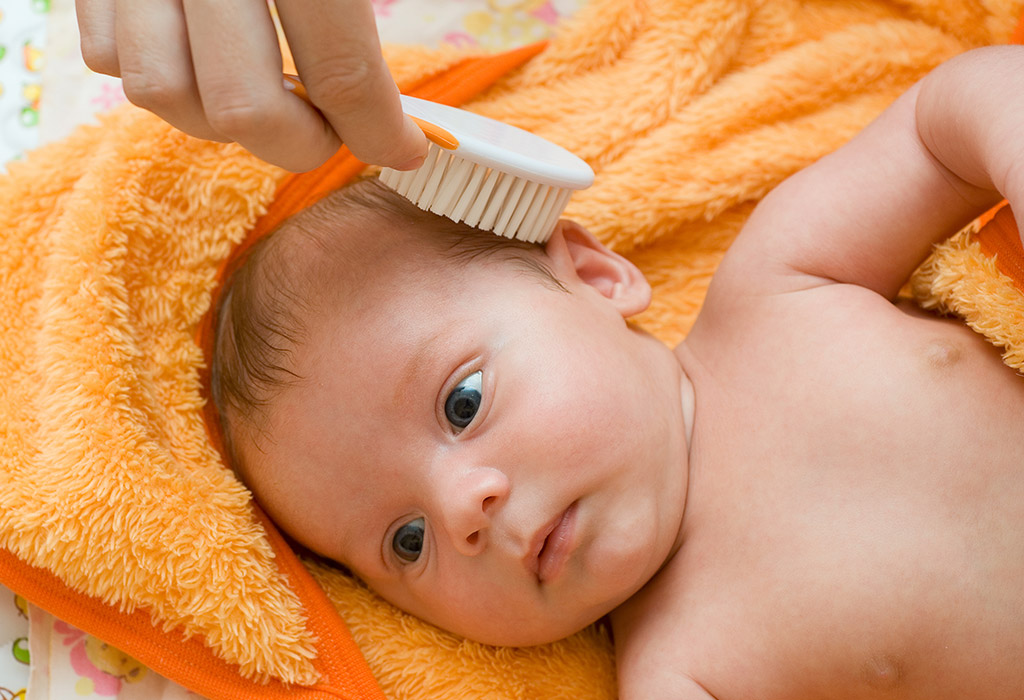Every baby is unique and every child develops differently. However, parents often worry about their new-born babies. Under normal circumstances, a developing child can still face several problems that could be as severe as infections or as tricky to understand as hair loss.
Hair Fall in Babies: Every Parent Should Know
When Does Baby Hair Fall Out
In the first six months after birth, a child will lose what is known as birth hair. This is the hair that a baby is born with and this hair is meant to fall off. Small amounts of hair fall post this period is also considered normal. Just like adults, hair loss to a small extent is to be expected in children.
If the hair fall is excessive and not related to the baby’s birth hair, it might be a cause of concern. This may require medical assistance, but before going to consult the doctor, it is best to evaluate the possible causes of hair loss in the baby.
Why
- Alopecia areata – one of the reasons for hair fall could be alopecia areata. This condition causes the immune system to attack the hair follicles all over the body. It can cause smooth bald patches throughout the scalp and is known to impact the speed of hair growth.
- The function of the thyroid hormone – thyroid disorders like hypothyroidism can lead to excessive hair loss.
- Underactivity of the pituitary gland – if the baby’s pituitary gland is under-active then may have a condition called hypopituitarism which can cause extreme hair loss.
- Trichotillomania – it is a condition observed in slightly older babies where compulsively pull of hair out. This could be a reason for hair fall.
- Physical damage – tying the baby’s hair too tightly or other forms of physical damage to the hair could lead to irreversible hair loss.
- Infection – a variant of the ringworm infection called tinea capitis is highly contagious and can cause hair loss, flaky and itchy scalp and redness on the scalp.
- Hair problems – lice infestations and the presence of dandruff can cause hair to fall.
Treatment/Remedies
Experts say that treatment is unnecessary and most hair that’s lost in the first few months of life is regained during months 6 to 12. There’s really nothing can do to stimulate regrowth but if medical condition like ringworm or alopecia areata, see the doctor for help with a diagnosis and treatment options and to prevent further hair loss.
Also, able to reduce hair loss from friction by giving the baby more tummy time but always put them to sleep on the backs until they turn 1 and can reliably roll over (from back to stomach to back) by own.
Dos and Don’ts
Things to be done –
- When washing, use a baby-formulated shampoo for newborns
- Be gentle while washing the baby’s hair
- Comb the hair with a soft bristled baby brush
- If the baby has trichotillomania, consult the doctor
- Gentle massage with little oil
- Only use medicated shampoos if a doctor prescribes it and use it only for the time recommended
- Put a hat or cap on if it’s too hot outside
Things to be avoided –
- Don’t use headbands and ponytails
- Don’t tie braids that are too tight
- Don’t use anti-dandruff shampoo unless there is a dandruff problem
- Don’t overuse oils
- Don’t wash the baby’s hair everyday
- Don’t stress the scalp and hair follicle while washing
- Don’t style the baby’s hair
- Don’t medicate the child unless a doctor prescribes the medication
- Don’t dry the hair with heat
Tips to Take Care of Baby Hair
- Use a mild shampoo made for babies because it’s less irritating to a newborn scalp.
- Don’t overdo the shampoo. Only need to suds up the baby’s scalp 2 to 3 times a week, anything more and risk drying out the scalp.
- Don’t scrub. Take a washcloth wet with shampoo and gently massage it over the baby’s head.
- Use a soft-bristled brush on the baby’s sudsy hair if you see cradle cap and want to try to gently remove some scales. Cradle cap is harmless and will eventually resolve on its own.
Conclusion – baby hair loss is normal and maybe most important of all temporary. But if the baby’s hair hasn’t started to regrow by the first birthday or anything odd such as bare patches, rashes or excessive scaliness on the scalp is noticed, take the baby to the doctor for evaluation.
References –
- https://parenting.firstcry.com/articles/hair-loss-in-babies-whats-normal-whats-not/
- https://www.healthline.com/health/baby/baby-hair-loss#takeaway
